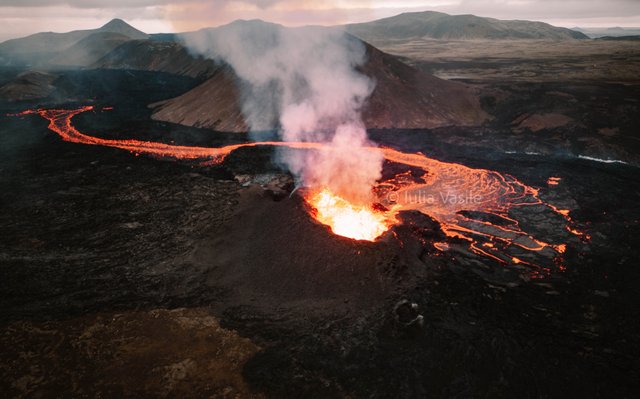How to visit Iceland's latest volcano eruption site 2023!

If you're itching to visit the site of Iceland's 2023 volcanic eruption, I have some tips for you. Based on my personal experiences of visiting the site twice, I can tell you that it's all about the amount of time you have, your hiking endurance, and your yearning to witness this spectacular natural phenomenon. If luck is on your side, you'll get to see one of the most stunning sights on Earth.
Before embarking on your journey, consider checking the air quality in the area. Shortly after the eruption in July 2023, the trail to the site was open for three days but had to be closed due to heavy winds pushing smoke towards the trail. The trail reopened a week later, but safety should be your utmost concern, always comply with the recommendations of local authorities.
Local Icelandic news sources such as ruv.is and mbl.is provide timely updates about the volcano. If you're not fluent in Icelandic, Google Translate comes in handy. Make sure you also check out SafeTravel.is for travel advisories and reliable updates.
When preparing for your hike, ensure you're equipped with proper hiking gear. Weather in Iceland can be quite unpredictable, so it's better to be safe than sorry. You might need high-ankle boots, a windproof jacket and pants, layers of clothing, a winter hat, mittens, and perhaps binoculars and a smoke mask. Walking sticks could also prove useful, despite the relatively flat terrain of the trails.
There are two main trails to the volcano - Trail A and Trail D. Both begin from organized parking lots, and parking fees apply. The Parka app can be used to pay for parking. Remember, off-road driving is illegal in Iceland, so stick to designated parking areas.
Choosing which trail to hike depends on the weather conditions. Trail A is longer, around 10km, and offers a more elevated view of the eruption. On the other hand, Trail D is a bit easier and was the first to open to tourists. A third unofficial trail, Vigdísarvallavegur, offers an alternative route but authorities do not recommend it due to the lack of parking and its challenging nature.
Lastly, keep in mind that the lava is still flowing, and walking on it is dangerous and forbidden. The trails can change frequently due to the rapid spread of lava, so make sure you're always updated with the latest advisories from Safetravel.is and local authorities. Always remember, your safety is your own responsibility.
If you want to find out all the details and tips make sure to visit my blog on how to hike to the latest 2023 volcano eruption in Iceland. I included all details for apps to use and even maps!
Happy and safe hiking!